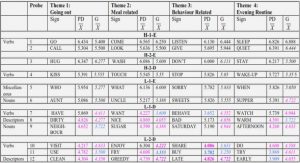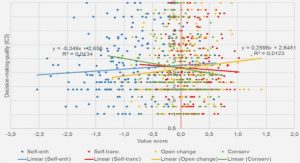Get Complete Project Material File(s) Now! »
Positioning Elizabeth Costello in
the animal rights debate: J.M. Coetzee’s (non-)use of the philosophers and poets in The Lives of Animals Let me add entirely parenthetically that I, as a person, as a personality, am overwhelmed, that my thinking is thrown into confusion and helplessness, by the fact of suffering in the world, and not only human suffering. These fictional constructions of mine are paltry, ludicrous defenses against that being-overwhelmed, and, to me, transparently so. (Coetzee, 1992, 248) In his thoughts, Herman spoke a eulogy for the mouse who had shared a portion of her life with him and who, because of him, had left this earth. “What do they know—all those scholars, all those philosophers, all the leaders of the world—about such as you? They have convinced themselves that man, the worst transgressor of all the species, is the crown of creation. All other creatures were created merely to provide him with food, pelts, to be tormented, exterminated. In relation to them, all people are Nazis; for the animals it is an eternal Treblinka. And yet man demands compassion from heaven.” (Singer, 1984b, 271).
The Possibility of Secular Salvation
in the Writings and Fiction of J.M. Coetzee: Sister Bridget’s Challenge to Humanism Amazing Grace, how sweet the sound, That saved a wretch like me, I once was lost, but now am found, Was blind, but now I see. John Newton (1779) The verses in the epigraph are from a Christian hymn written by the former captain of a slave ship involved in the Atlantic slave trade who eventually converted to Christianity and repented his role in the slave trade for the rest of his life. His hymn is based on a prayer by King David (1 Chronicles 17: 16-17) and expresses gratitude for moments of grace in which he was saved from sin.
His work as a priest inspired William Wilberforce, whose efforts to abolish the slave trade in Britain eventually succeeded in 1823. Newton’s story raises interesting questions about personal and general complicity in an evil institution such as slavery, considered normal at the time, and whether there is the need for divine intervention, or moments of grace, to achieve salvation, questions at the heart of much of Coetzee’s writing. The question of (secular) salvation is one of the most difficult ones in Coetzee’s writings. It is not clear why a secular writer like Coetzee should feel the need to use the biblical narrative of the fall, grace and redemption at all. However, he does use such religious terminology in secular contexts, and so this needs to be explored. It is fair to ask, then, what exactly his protagonists need to be saved from.
Is it from their guilt at being (unwillingly) complicit in exploitative and brutal social, political and economic structures, such as colonialism, Nazism, apartheid and the industrialised farming of animals? Is it from being perpetrators or victims in these systems? Does salvation relate to suffering and death? Or is the disgrace being born into a world that is fallen and inherently imperfect, if not evil? Is Coetzee concerned with the salvation not only of his protagonists but also of the entire world they inhabit? It will be argued, in the following chapter, that the state of disgrace in Disgrace is realised at all levels, that the novel depicts an entire world in a fallen state requiring salvation, but without the possibility of divine intervention or grace. It is just such a fallen world that Elizabeth Costello tries to bring to her audience’s attention in The Lives of .
Animals and Secular Salvation in
Disgrace The pessimism of the creative person is not decadence, but a mighty passion for the redemption of man. While the poet entertains he continues to search for eternal truths, for the essence of being. In his own fashion he tries to solve the riddle of our time and change, to find an answer to suffering, to reveal love in the very abyss of cruelty and injustice. Strange as these words may sound, I often play with the idea that when all the social theories collapse and wars and revolutions leave humanity in utter gloom, the poet—whom Plato banned from his Republic—may rise up to save us all. (Isaac Bashevis Singer, Nobel Prize Acceptance Speech, 1978) Both The Lives of Animals and Disgrace were published in 1999 and both deal with human-animal relations, although in apparently very different ways. For all its emphasis on embodiedness, The Lives of Animals deals with animals in a very abstract way, that is, in the frame of a lecture, and one sympathetic critic, Barbara Smuts, whose essay is attached as one of the “Reflections” on The Lives of Animals, notes that “none of the characters ever mentions a personal encounter with an animal” (Coetzee, 1999b, 107).
Smuts, a primatologist, goes on to narrate her extensive personal experiences with baboons in the wild and with her dog, confirming many of Costello’s insights about sympathetic imagination and the complexity of nonhuman animal experience. The critical consensus seems to be that this apparent shortfall in The Lives of Animals is more than made up for in Disgrace where the disgraced protagonist, David Lurie, ends up spending most of his time caring for the animals in an animal shelter, ironically performing the community service that he had initially refused to do when requested to do so by the disciplinary committee earlier in the novel as a public act of contrition. However, it will be more valuable to see The Lives of Animals and Disgrace in terms of complementing each other rather than in a relation of opposition. Thus, in this chapter, the insights and conceptual framework developed in previous chapters, which dealt with much of the fiction involving Elizabeth Costello, will be used to illuminate Disgrace, and the latter will help to cast light on the former, most notably in the difficult question of the role animals play in human (secular) salvation.
Table of Contents :
- Abstract
- Acknowledgements
- Table of Contents
- 1 Positioning Elizabeth Costello in the animal rights debate: J.M Coetzee’s (non-)use of the philosophers and poets in The Lives of Animals
- 2 Elizabeth Costello as a Socratic figure: Eros, Maieusis and Death in The Lives of Animals, Elizabeth Costello and Slow Man
- 3 Misology, dialogism and monologism: Costello’s (mis-)use of her sources in The Lives of Animals and her alleged abuse of reason, Part
- 4 Misology, dialogism and monologism: Costello’s (mis-)use of her sources in The Lives of Animals and her alleged abuse of reason, Part
- 5 The Possibility of Secular Salvation in the Writings and Fiction of J.M. Coetzee: Sister Bridget’s Challenge to Humanism
- 6 Animals and Secular Salvation in Disgrace
- 7 J.M. Coetzee and the Ethics of Eating
- 8 Conclusion
GET THE COMPLETE PROJECT
J.M. COETZEE AND ANIMAL RIGHTS: ELIZABETH COSTELLO’S CHALLENGE TO PHILOSOPHY






